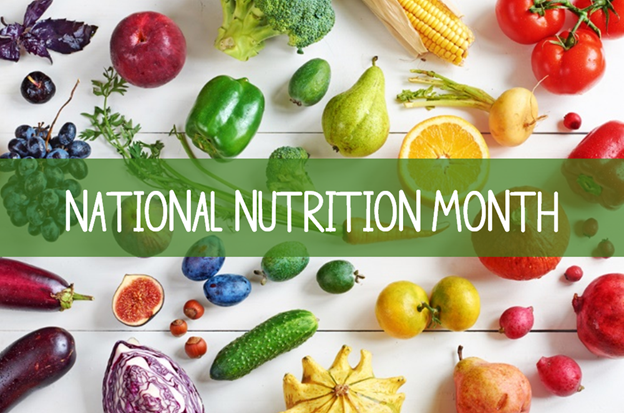Written By: Jennifer Darby, PT, DPT, GCS, CCC, CEEAA
 As rehab professionals we often overlook the importance of good nutrition for our patients. Yet have you ever had a patient tell you they feel dizzy, lightheaded, or just too weak to participate in your session? Although this can be from various causes, one of the most common and easiest to address is nutrition. Do you ask your patients what they have eaten before your therapy session or the previous day? If they have been drinking enough water? Very commonly my patients are not ingesting enough nutrients to allow for proper healing and strength training. If patients are not ingesting proper nutrients and we are taking them through a course of activities and strength training to attempt to improve function, we could be causing them harm! That is right, if we are not at least asking about patient nutrition, we could be causing our patients harm. Various research studies, including studies published in the Journal of Clinical Nutrition, noted, “Understanding and applying nutrition knowledge and skills to all aspects of healthcare are extremely important, and all health professionals need to effectively assess dietary intake and provide appropriate guidance, counseling, and treatments to their patients. Physicians, PA nurses, NPs, pharmacists, dentists, occupational therapists, physical therapists, speech and language pathologists, and others can positively affect patient care by synchronizing the importance of nutrition across all specialty areas.”
As rehab professionals we often overlook the importance of good nutrition for our patients. Yet have you ever had a patient tell you they feel dizzy, lightheaded, or just too weak to participate in your session? Although this can be from various causes, one of the most common and easiest to address is nutrition. Do you ask your patients what they have eaten before your therapy session or the previous day? If they have been drinking enough water? Very commonly my patients are not ingesting enough nutrients to allow for proper healing and strength training. If patients are not ingesting proper nutrients and we are taking them through a course of activities and strength training to attempt to improve function, we could be causing them harm! That is right, if we are not at least asking about patient nutrition, we could be causing our patients harm. Various research studies, including studies published in the Journal of Clinical Nutrition, noted, “Understanding and applying nutrition knowledge and skills to all aspects of healthcare are extremely important, and all health professionals need to effectively assess dietary intake and provide appropriate guidance, counseling, and treatments to their patients. Physicians, PA nurses, NPs, pharmacists, dentists, occupational therapists, physical therapists, speech and language pathologists, and others can positively affect patient care by synchronizing the importance of nutrition across all specialty areas.”
 So, what should we be teaching our patients regarding healthy nutrition? There are some basic recommendations that we can make to potentially improve their participation in therapy sessions and enhance outcomes. First, we want to make sure they are ingesting adequate amounts of protein. Ideally, about twenty-five grams per meal is recommended. That equals a piece of chicken, fish, or tofu that is about the size of their fist. Next, it is important to make sure healthy carbohydrates are included. Healthy carbohydrates include but are not limited to, complex grains, vegetables, fruit, and beans. Finally, healthy fat ideally contains omega three or nine and does not contain omega six. Fatty fish such as salmon and mackerel are some suggestions along with flax oils, avocados, nuts (if there aren’t any allergies) and olive oil are all great options. If they are healing from a recent surgery, research studies have supported the recommendation of ingesting Vitamin C post-surgery. Vitamin C plays an integral part in wound healing and immune function. Adequate levels have even been associated with faster healing time following fracture and/or surgery. Vitamin C also aids in collagen synthesis, a necessity for normal bone development and maintenance of bone mass. Although findings are conflicting, there is evidence that Vitamin C prevents the post-operative complication of regional pain syndrome. Citrus fruits can be added to provide Vitamin C in their diet, or they can even be squeezed into a water bottle to be ingested throughout the day.
So, what should we be teaching our patients regarding healthy nutrition? There are some basic recommendations that we can make to potentially improve their participation in therapy sessions and enhance outcomes. First, we want to make sure they are ingesting adequate amounts of protein. Ideally, about twenty-five grams per meal is recommended. That equals a piece of chicken, fish, or tofu that is about the size of their fist. Next, it is important to make sure healthy carbohydrates are included. Healthy carbohydrates include but are not limited to, complex grains, vegetables, fruit, and beans. Finally, healthy fat ideally contains omega three or nine and does not contain omega six. Fatty fish such as salmon and mackerel are some suggestions along with flax oils, avocados, nuts (if there aren’t any allergies) and olive oil are all great options. If they are healing from a recent surgery, research studies have supported the recommendation of ingesting Vitamin C post-surgery. Vitamin C plays an integral part in wound healing and immune function. Adequate levels have even been associated with faster healing time following fracture and/or surgery. Vitamin C also aids in collagen synthesis, a necessity for normal bone development and maintenance of bone mass. Although findings are conflicting, there is evidence that Vitamin C prevents the post-operative complication of regional pain syndrome. Citrus fruits can be added to provide Vitamin C in their diet, or they can even be squeezed into a water bottle to be ingested throughout the day.
From a value-based treatment approach, optimizing patients’ nutrition can enhance your therapy session and allow for improved patient outcomes. Educating patients on ways to optimize their nutrition during times of healing or recovery can add to patient satisfaction and improve overall patient care. To learn more about nutritional optimization with patients, explore my On-Demand Video courses below where we dive into all things nutrition for various patient populations.
Explore online continuing education courses from Jennifer below:
Nutrition Management for the Diabetic Patient
Nutrition Management for the Cardiac Patient
Nutrition Management for Dementia Patients
Nutrition Management for Patients with Multiple Sclerosis
Nutrition Management for Cancer Patients
Visit summit-education.com for more information.
References:
DiMaria-Ghalili RA, Mirtallo JM, Tobin BW, Hark L, Van Horn L, Palmer CA. Challenges and opportunities for nutrition education and training in the health care professions: intraprofessional and interprofessional call to action. Am J Clin Nutr. 2014 May;99(5 Suppl):1184S-93S. doi: 10.3945/ajcn.113.073536. Epub 2014 Mar 19. PMID: 24646823; PMCID: PMC3985220.Tatta J, Nijs J, Elma Ö, Malfliet A, Magnusson D. The Critical Role of Nutrition Care to Improve Pain Management: A Global Call to Action for Physical Therapist Practice. Phys Ther. 2022 Apr 1;102(4):pzab296. doi: 10.1093/ptj/pzab296. PMID: 35023558.
Longland TM, Oikawa SY, Mitchell CJ, Devries MC, Phillips SM. Higher compared with lower dietary protein during an energy deficit combined with intense exercise promotes greater lean mass gain and fat mass loss: a randomized trial. Am J Clin Nutr. 2016 Mar;103(3):738-46. doi: 10.3945/ajcn.115.119339. Epub 2016 Jan 27. PMID: 26817506.
Park Y, Choi JE, Hwang HS. Protein supplementation improves muscle mass and physical performance in undernourished prefrail and frail elderly subjects: a randomized, double-blind, placebo-controlled trial. Am J Clin Nutr. 2018 Nov 1;108(5):1026-1033. doi: 10.1093/ajcn/nqy214. PMID: 30475969.
Bischoff-Ferrari HA, Freystätter G, Vellas B, Dawson-Hughes B, Kressig RW, Kanis JA, Willett WC, Manson JE, Rizzoli R, Theiler R, Hofbauer LC, Armbrecht G, da Silva JAP, Blauth M, de Godoi Rezende Costa Molino C, Lang W, Siebert U, Egli A, Orav EJ, Wieczorek M; DO-HEALTH Research Group. Effects of vitamin D, omega-3 fatty acids, and a simple home strength exercise program on fall prevention: the DO-HEALTH randomized clinical trial. Am J Clin Nutr. 2022 May 1;115(5):1311-1321. doi: 10.1093/ajcn/nqac022. PMID: 35136915.
About Summit Professional Education
Summit equips therapists with better continuing education courses that provide CEUs while impacting patient outcomes. Find high-quality on-demand CE along with the largest offering of live options — including live webinars, live streams, and in-person courses. Want to deep dive on a topic? Summit offers hundreds of 6-hour courses for the most in-depth learning!
